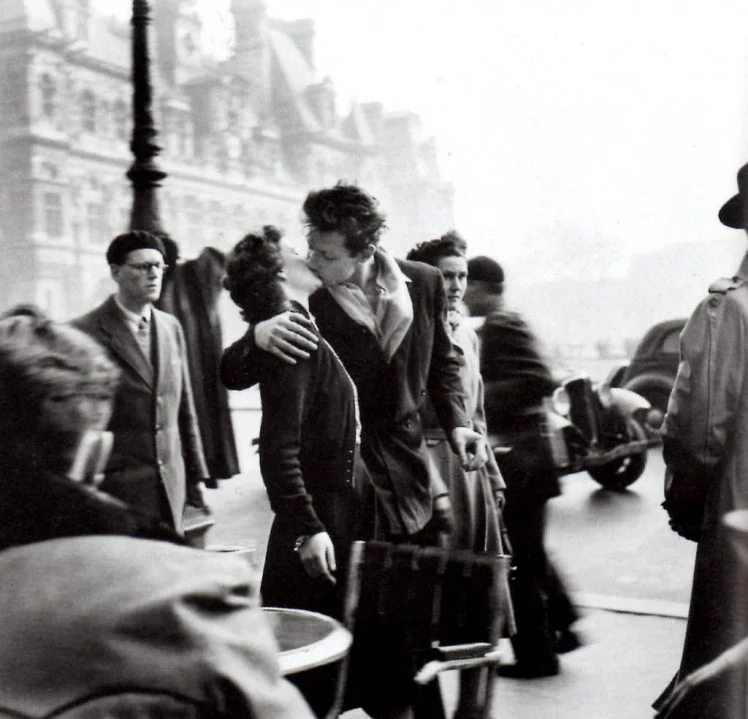Why The French Language Is Considered To Be "The Language Of Love"
French - the language of love. Why is French perceived as the language of love?
France, the motherland of love. This is undeniably one of the strongest cliché attached to France. Why is French language so often considered the language of love?
Is it because of the French’s supposedly romantic behavior? Or because of the so-called elegance of their language? If a cliché is woven out of old unconscious fantasies and the real facts, then the line between the two remains blurry. Lets take a look at a few facts and some fantasies here in our blog.
French is sexy
French is considered a sexy language. This is one of the strongest ingrained cliches’ about the French language.
According to Babbel’s recent survey – (a specialist in language learning) – 34% of the people interviewed declared French to be the sexiest language. The French accent also has had good press. 37 % of 140 000 people interviewed mark it as the “sexiest” accent’s chart-topper. 90% of Babbel’s internet users also say that if they were to learn a language according to its’s romanticism, they’d probably choose French. So yes, there is certainly a perception that French is the language of love.
A little more than a matter of musicality
But just what is it that renders French so irresistible? According to the ears of foreigners, it seems that French’s tone is perceived as musical and harmonious. A lot of words are linked together by a liaison, bringing a certain softness to sentences’ rhythm. To the ear of non-native listeners, such phrases lacking any brutal interruptions are perceived as gracious tessitura. Melodic variations are few, contrary to English or Italian.
The French language is very accurate and comprises of many nuances to describe emotional and sensational ranges. Even though French’s lexical expressions are fewer than English ones.
Having said this, can we simply rely on a linguistic subtlety matter? Perhaps, but only partially. If we take a look at French expressions, we may find love’s numerous terms interesting. For example: “fiancé”, “ménage à trois”, “liaison”, “femme fatale”, “cinq à sept”, “tête à tête”. Words which have crossed the linguistic and country borders to enter the English language. If a language always reflects a country’s culture, to a certain extent, the answers to our queries must be found elsewhere.
Movies and literature
It would be foolish to crown the French with an Oscar, over such a universal theme as love. Nevertheless, we have to admit that French passion, romanticism and love behaviours have very much inspired the country’s literature. It all started with two cursed lovers: Abelard and Heloise, and their passionate letters. Their tragic affair transformed them into love martyrs in the 12th century . Over the centuries, authors such Stendhal, Flaubert, [Dumas, Balzac, Zola, and Hugo…] have fed their novels with love stories and romances. Later on, movies carried on the torch with films, and the same happened with photography.
French language love. Hotel de Ville’s kiss by Robert Doisneau
We don’t have to go back far! Just have a look at the emblematic romantic picture, also famous worldwide: Le baiser de l’Hôtel de Ville .[The Hotel de Ville’s kiss] by Robert Doisneau. In this iconic photo, two lover’s embrace on the Hotel de Ville’s square. This iconic picture was actually ordered by the American magazine Life, in 1950, and the two seemingly lovers were paid for the shot. Not so romantic after all!
But if love is so portrayed in French literature, movies and photography, what about the common Frenchmen? Love and its practiced demonstrations do seem to hold an exceptional cultural stand. For instance, in France showing certain physical intimacy in a public place is widely practiced and accepted culturally. While on the other hand, public displays of affection is often perceived as inappropriate or shocking in other countries.
Tolerance regarding famous people’s scandalous lives
Turning away from the common Frenchman’s lifestyle, let’s have a look at the social pyramid’s upper class levels. The country leaders, whether kings or presidents, have often had rather tumultuous love lives, coloured with scandals.
Looking back a few centuries ago, Henry the 4th and Louis the 14th’s numerous love conquests have always been accepted and even praised. French country leader’s love lives still remain an unfailing source of fantasies, whether they were exploited or concealed. We don’t need go back in history too far. One example was François Mitterrand’s transgressive life. Mitterand was married, but also had a mistress and a hidden daughter. And the latter two lifestyles were kept with government funds!
menage a trois
More recently in 2014, François Holland’s private escapades became a hot topic in France. His affair with actress Julie Gayet, while in a relationship with Valerie Trierweiler, remind us of a remake of Ménage à trois. It was quite symbolic of the Vaudeville trio, a famous type of French theatre.
Therefore, whether involving flirtations, passions, adulterous or sexual affairs, French public figures have often had heated reputations. And certainly without it influencing their political life or dishonouring their public life. In comparison, the Lewinsky affair repercussions resulting in President Bill Clinton’s political suspension, would have been unthinkable on this side of the Atlantic.
Yet times are changing and president’s private lives may become more public and transparent. Will this bring an end to intimate secrets? The future will tell us. Or it won’t.
If you wish to learn French in Paris with personalized on a one-to-one basis French à La Carte offer customized French lessons in Paris to match your schedule, your location and your linguistic goals.
French language courses in Paris
We hope you enjoyed reading our latest blog, [wysija_form id="2"] subscribe, and we will update you on all things French!
Photo credits:
Love Locks in Paris: Photo credit: leoglenn_g via Foter.com / CC BY




